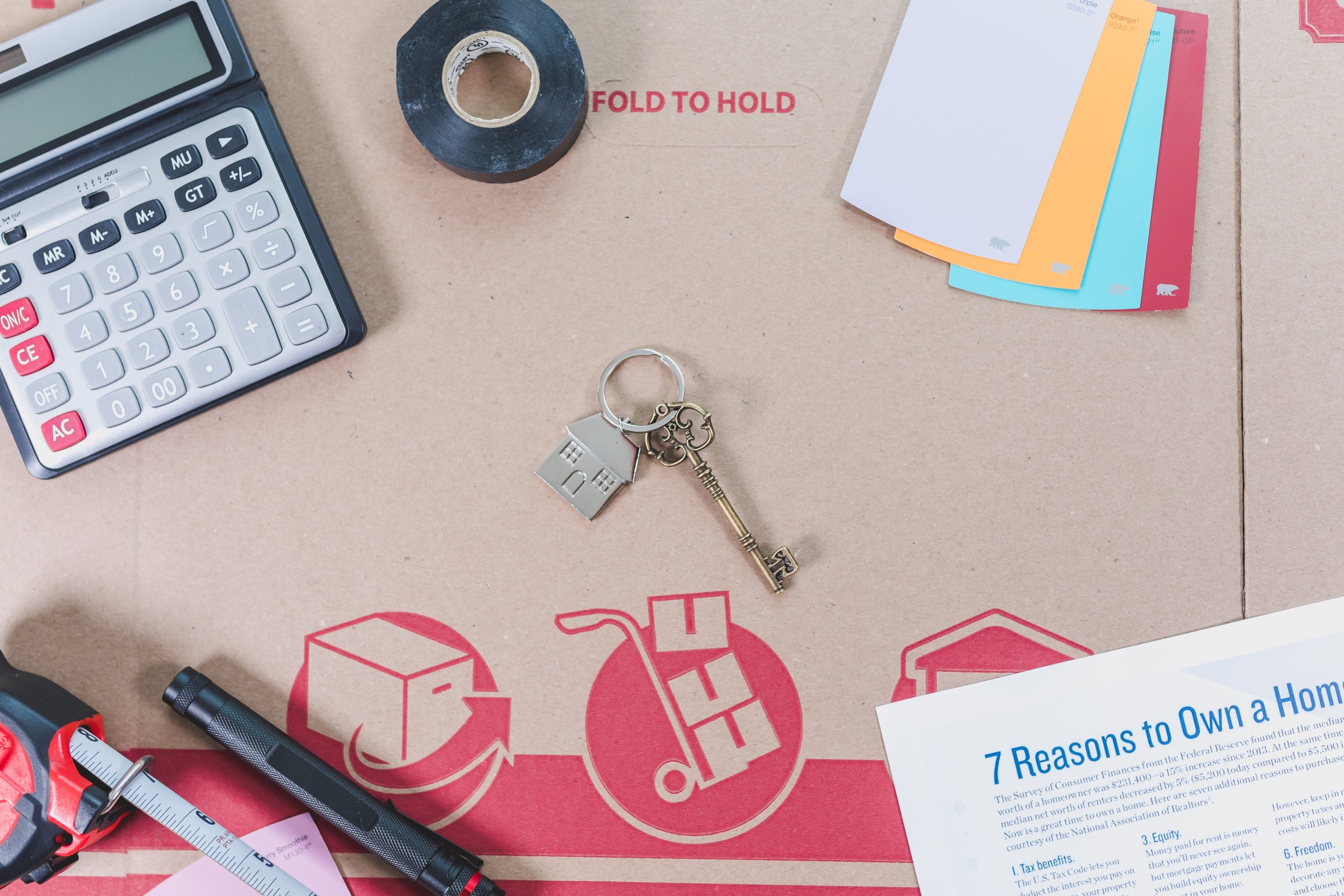
What IFG will do to help bring about a truly Islamic economy
05 January 2024 8 min read

16 min read
Published:
Updated:
IW
IFG Staff Writers
Buying a house and choosing whether to buy or rent is the biggest financial decision most people will ever make in their lives. It will affect your life, your family, and your finances for as long as you live.
That is why this subject is one of the most important parts of a financial education. Given this fact, it is disheartening to see the misunderstanding on this topic.
For a lot of people, buying a house becomes a ‘keeping up with the Joneses’ status game where you try to (implicitly) compete with your social circles.
Or people just accept the fact that after university you get a job, you get married, and then you must buy a house and get a mortgage as soon as possible.
On the other hand, it’s unfortunately the case that buying a house has never been more difficult. Housing prices are stretching away from average incomes rapidly, leaving people at the mercy of a more uncertain lifestyle.
You literally can’t afford to leave your finances to popular myths and social constructs. Personal finance is always about learning what’s best for you and your family and making a coherent, sensible plan for your life goals.
This guide will explain the costs and benefits of both home ownership and renting, and most importantly bust some popular myths that stop people from making sensible financial decisions.
So, should you buy or rent a home?
Let’s explore.
It is important to understand the underlying trends in homeownership and renting before we begin our discussion. There are many stereotypes tied up in the debate on renting vs homeownership. These should be clarified so you have a clear idea of why certain myths exist.
The UK was largely a nation of renters at the beginning of the 20th century. This continued until around the 1960s, when rates of homeownership began to increase.
Rising incomes and the increased availability of mortgages (especially through building societies) enabled people to leverage their incomes to purchase houses, pushing homeownership rates above renting rates for decades to come.
Homeownership peaked in 2003, and the private rental market is once again on an upward trend. From below 10% in the mid-1990s to nearly 20% in 2018, the UK is once again on trend to become a nation of renters.
The data shows that renters are typically:
Younger (with only 41% of 25 to 34 year old households heads owning their own home).
On lower incomes (59.2% of households earning £300 or less are renters).
Living in terraced houses (over half).
Living in properties with fewer rooms and higher overcrowding rates.
It is also unfortunately the case that privately rented homes are slightly more likely to be non-decent dwellings (16.3% for owner-occupied homes vs 23.3% for rented homes).
Given all this, along with the landlord horror stories and some myths that persist, renting is seen amongst many of the middle-class as either:
A downtrodden form of living only resorted to by those on low incomes with precarious lifestyles.
A very temporary solution for students or those at the absolute beginning of their careers post-university.
The problem arises when we exaggerate the data and let these images drive our decisions instead of concrete facts and our financial plans.
The primary benefit of owning your own home isn’t financial, it’s mostly psychological. Home ownership brings with it a stability that is difficult to attain as a tenant.
A tenant carries with them the worry that their landlord may decide to sell their home or want to find new tenants. Even if you have a very good relationship with the landlord, ultimately the landlord sees the house as an investment.
The moment the investment doesn’t align with their life, it becomes expendable.
It may not be as common in more affluent areas, but it’s not unheard of for landlords to try to evict their tenant through section 21 notices after disagreements.
Your life and your home are unfortunately at the mercy of someone else’s financial plan. This is the reason why a lot of couples try to get a place of their own before they plan to have kids.
It’s one thing having to put up with uncertainty when it’s just the two of you, but no one wants to have to move when they’ve got a new-born to care for, or when their 5-year-old has settled into their school.
Children that grow up in privately rented homes are, on average, around six times more likely to move three or more times by the time they’re fourteen, compared to children that grow up in owner-occupied homes (20% vs 3%).
Of course, the data does show that most children growing up in rented homes overall don’t move that often. Which is to say that whilst renting is less ‘stable’, it’s stable enough that that uncertainty shouldn’t translate into anxiety for most people.
It’s just not as stable as home ownership.
The flip side of this is that renting gives you a level of flexibility that home-ownership cannot give you.
One of the most popular and persistent myths is that ‘renting is throwing your money away’. That notion is categorically false, as you’ll see in the myth-busting section below.
What is true is that with ownership (through taking out a mortgage) you are slowly and quite expensively building equity in a property. As a tenant, your rent does not contribute to the equity of your home, and you therefore obviously don’t have any ownership whatsoever.
In the short-term, this doesn’t really matter as much. But from a big picture generational perspective, it is probably one of the most important financial commitments you can make.
Couple this with the fact that housing affordability continues to worsen relative to average earnings, pushing ownership further away from the grasp of the average person, and you realise the long-term benefits of passing on property to your inheritors.
Land is one of the most fundamental forms of capital, and with inheritance and intergenerational wealth playing an ever important role for the finances of the new generation, building equity in your home is building stability for yourself and your children.
Live in a rented property? Be prepared to ask for permission for every little change you want to make.
Unless explicitly stated in your lease, you must ask permission to bring a pet, to put up nails, to paint the walls, let alone construction of something.
This point coincides with the first two. If you really want to make a ‘long-term’ home and put your roots down somewhere and fully make the place your own, homeownership is the only way to go.
This is especially true of people with families who want to invest in an enduring home for themselves and their children as they grow older.
If the house you purchase is in a condition that you don’t like, if there are broken pipes or weird room layouts, you can change it if you have the cash.
As a renter, you must ask your landlord to fix anything and wait on them. If your landlord is not very caring, you might at times have to put up with subpar conditions in parts of your home.
This is one of the reasons why homeowners live in slightly better conditions than renters (along with the fact that poorer families have no choice but to rent subpar homes at times).
Whilst in previous years, many people were put off buying homes as there were no real Islamic options to buying one, nowadays that has been remedied.
In our definitive guide, we mention that there are at least 6 providers nowadays who offer an Islamic option of buying a home.
If you’re looking into buying a home, our guide is a great place for you to start.
Once you’re tied down to a home with a mortgage, it becomes increasingly expensive (mortgage, lender fees, solicitors, and surveys all cost money each time) to move around. Renting allows you the option to finish your lease and move without having to think about those exorbitant costs.
What’s more is that if you negotiate a break clause with your landlord, you have the option of terminating your lease earlier if you’re after flexibility.
This is especially useful for people who might be taking risks and pursuing businesses or volatile new careers. This uncertainty and flexibility can give you a sense of certainty in itself. By not committing to a home, you have optionality (leaving your options open) and have certainty knowing that you aren’t tied down.
The reason homeownership ties you down is because it is a highly illiquid asset, so it is much more arduous to sell. Given the nature of this illiquidity, not making rash decisions when it comes to purchasing your house is important.
Renting is undoubtedly cheaper, especially in the short to medium-term.
Average house prices in the UK have now increased to £270,000.
Right off the bat, you don’t need a huge deposit to finance your home. A mortgage deposit of around 10% for an average home in the UK would be just under £30,000.
Add to this solicitor costs, surveying, lender fees, home insurance and other fees and for some even the cost of doing up their home as they move in, and you’re looking at a heavy initial payment to acquire a home.
Compare this to the initial costs a renter faces. The average rent in England is £755. Deposits are usually 4-6 weeks of rent. A renter would only need, on average, around £1,200 to start living in their new place.
Given a mortgage term of 30 years, and given the average first-time buyer deposit of 15% and the average house price of £270,000, an Islamic mortgage may mean payments of more than £1,000 a month.
Just for illustration purposes, a conventional mortgage would cost just above £800 a month given those same conditions. This is not to mention rising interest rates and the knock-on effect this will have on monthly mortgage payments.
On a conventional mortgage, huge sums of money are not spent on ‘equity’, but purely on interest, especially in the first few years of your mortgage. On an Islamic mortgage, you’re paying a higher payment each month due to paying a ‘rent’ for the portion of the home you don’t own.
Either way, there are unrecoverable costs involved in homeownership too.
Whilst the debates around Islamic mortgages are not going away any time soon, many prefer to stick to renting.
Whilst our own view is that Islamic mortgages are perfectly fine, renting can not just be a commercially sensible choice sometimes, but is also uncontroversially fine from an Islamic standpoint.
By paying rent, you are paying for a service: housing. You gain access to housing in exchange for money. Money is not ‘thrown away’ but given in exchange for a roof over your head.
Of course, many proponents in the real estate industry argue that while you get a place to live, you’re paying someone else’s mortgage. You could be building your own equity.
This argument is naïve. The right way to look at this question is through the concept of ‘unrecoverable costs’.
Unrecoverable costs are ‘any costs you pay with no associated residual value. In other words, it’s money spent, never to be seen again, in exchange for having a place to live.’
Homeowners and renters both pay amounts of money simply to continue having a home, without building any long-term equity.
Another important concept is opportunity cost, which is potential benefits you missed out on when choosing one alternative over another.
So putting money into a house means you didn’t choose to invest in, for example, a low-risk stocks portfolio: it’s a sort of potential loss. Your money could have reaped higher returns.
The fact is that homeowners have higher unrecoverable costs and higher opportunity costs than renters.
Renters pay:
Monthly rent (unrecoverable cost, in exchange for a home)
Council tax (unrecoverable cost, in exchange for a home)
Utilities (unrecoverable cost, in exchange for utility services)
Homeowners pay:
Monthly interest (on a conventional mortgage) or monthly rent (on an Islamic mortgage) which is an unrecoverable cost
Council tax (unrecoverable cost, in exchange for a home)
Utilities (unrecoverable cost, in exchange for utility services)
Costs of property maintenance (unrecoverable cost just to maintain the state of the home)
Solicitor, surveyor, and mortgage fees (unrecoverable costs)
Estate agent fees if they are selling a property to purchase another (unrecoverable cost)
Stamp duty (unrecoverable cost, though not as relevant for first-time buyers buying a house under £300,000 as they have an exemption)
Buildings insurance (unrecoverable cost, usually made mandatory by the mortgage lender)
Not to mention the costs a homeowner would put into enhancing their home, which do not yield a return on investment.
The renovation that adds the most to a property’s value is a loft conversion, which can add around £11,000 to the price of the average home. However, the cost of the average loft conversion is £22,000. Which means a 50% loss.
Ωhe counterargument is that a home should not only be viewed through a financial lens. A home is much more than a money equation. This would be right, since most homeowners (63%) say their reason for renovation is to make their home more comfortable. Only 27% said their reason was to increase the value of the property.
It’s an important distinction to make: psychological vs financial. Being honest with yourself is the best personal finance policy. You may lose money in the long-term, but living in a comfortable home of your own making may be worth it if it aligns with your goals.
Britain’s obsession with property ownership goes back centuries.
The only people that could vote initially were male property owners. This gradually came to an end during the 19th and 20th centuries.
This obsession only became stronger during the post-war era with grand projects of social housing across the country. Margaret Thatcher declared her commitment to a ‘property-owning democracy’ in her first speech as Conservative leader, laying out her Right to Buy scheme.
This attitude has been with us ever since. The current government promises to turn ‘generation rent’ into ‘generation buy’, with the implication that buying a home should be an inevitable and hasty consequence of being a free adult in this country.
Unhelpful phrases like ‘rent is throwing money away’ add fuel to the fire. But of course, it’s also true that there are swathes of an entire generation condemned and coerced into renting because of a property ladder that’s grown very quickly out of reach.
It’s good to keep in mind that the real estate industry is one of the largest industries in the world, hitting $10.5 trillion in 2020.
Estate agents, solicitors, banks, property developers, and governments all benefit when you buy a property. From fees to taxes to interest to high property prices, all these parties stand to benefit from your money.
Given the colossal size of this industry, it’s only natural that there would be big budgets to advertise and push properties. Jumping on the property ladder isn’t advertised to you purely for your benefit.
The data shows that property is a relatively safe investment, especially in the UK.
The last half century has seen property prices trend upwards. Even during the 2008 crash, property prices fell for only 16 months by 15% total on average, before beginning to soar upwards again.
Given that prices fell by less than a fifth for just over a year during what has been called a global financial meltdown, the average homeowner whose job was not in jeopardy could have easily come out relatively unscathed.
Property being a very safe asset class is not a universal truth, though. Japan’s real estate crisis during its ‘Lost Decade’ era saw property prices plunge 60% in the 1990s. By 2001, land prices had dropped by 70%.
Residential property prices in Japan have still not recovered to their 1991 peak, with growth after the crash having slowed heavily.
Black swan events can crash any asset class, including both stocks and property.
What the ‘building equity’ myth gets right is that once you have some equity in your home, it becomes easier to hop around the property ladder. Because the price of your home will, on average, increase just as much as any other residential property.
This acts as a sort of property ladder inflation hedge, where you can then use the equity you build to finance your next home should you choose to sell. A renter, on the other hand, must start from scratch with only their savings.
The caveat to this is if a renter chooses to invest using savings from renting.
The renter would then, over several years, potentially be in a better position to buy a house than if they’d have stretched their finances to buy a house at the beginning of their careers due to higher returns in investments.
But of course, this requires strict financial discipline and actually choosing the right investmenst.
The IFG Buy or Rent Calculator will help you to work out what return you need to make off your investments in order to be better off renting.
For the average residential property purchaser, stocks would undoubtedly make a better investment. Especially in today’s market, the overheads of owning stocks in an ISA or SIPP are so low (given the generous tax benefits and zero-commission or low-cost brokers) compared to the costs of purchasing property.
Data sets show that:
‘Between 1900 and 2014, the average annual real return was 0.3% for U.S. real estate in USD, and 1.3% for U.K. real estate in GBP. Between 1900 and 2015, U.S. stocks produced an annualized real return of 6.4% in USD, U.K. stocks 5.4% in GBP, and Canadian stocks 5.6% in CAD. Past performance does not predict future results, but it might be reasonable to state that financial markets can be expected to deliver better long-term real returns than real estate.’ (read more on that research here)
This demonstrates the power of opportunity costs.
If a renter invested the money they saved by not buying a house, they can expect to earn returns far higher than the homeowner over the long-term.
Of course, the issue with looking at this question purely from a return-on-investment perspective is that buying a home isn’t purely a financial question. There is a huge amount of benefit in the mental stability and satisfaction that comes with owning your home.
We’ve established that renting typically works out cheaper than owning, particularly in the short to medium-term.
An argument people make against homeownership is that if the rents in your area are cheaper than the monthly mortgage payments you would expect to pay, then it always makes sense to rent.
Speaking purely from a numbers perspective, this is true.
But we know that the issue of homeownership isn’t purely a numbers game. Your life circumstances, your family situation, and your goals are just as important.
Consider the scenario where you now have a new-born, but you’ve advanced in your career with a reasonable salary and you’ve been slowly saving for the past few years. You have enough for a 15% deposit for an average home in your area, but rents are still much cheaper overall especially given the other costs associated with buying a home.
Running the numbers, the unrecoverable and opportunity costs would still mean renting makes more pure financial sense.
But that is not the only part of the equation you must consider. If you feel as parents that you want to build a stable long-term home, build a family, foster a sense of community in your children, and slowly build the house of your dreams, that may be enough to steer you towards homeownership.
Even if it means you may be financially worse off had you rented and invested.
On the other hand, you may have a high-paying job and could easily afford to buy a house, but your long-term life goals mean you want to travel or move around a lot, or you’d rather invest your money.
In these scenarios you may opt out of buying a house at this moment altogether to realise better returns on investment and retain flexibility.
There are three main things to consider when deciding:
Wellbeing and psychological
Life goals and family
Money and finance
Research shows that homeowners overestimate the long-term satisfaction they would receive from owning a home. Other factors in life such as health and relationships have a much stronger impact on happiness rather than homeownership.
However, for some people, owning a home may contribute to life-satisfaction. This is especially true for renters who have been stuck in non-decent dwellings on low-income.
The overall wellbeing of your family is also just as important. If your family does not mind the potential risk of having to move from a rented home, then renting is a viable option for you.
But if you’ve been a renter and have had to move around a lot, your wellbeing may increase if you buy a house of your own.
Ultimately, it comes down to whether renting or homeownership align with your lifestyle choices and the impacts they would have on your life.
If your family prizes building a long-term home and the higher monetary costs and inflexibility of homeownership don’t contradict your life goals, homeownership may be the way to go.
If the flexibility and lower financial costs align more with your life and the slight uncertainty isn’t an issue, renting may be more viable.
The answer to this question will change depending on what phase you are in your life. It is good financial sense to reassess your situation and your goals regularly to see what decisions make more sense according to your plan.
You may be a single entrepreneur who values the flexibility and wants to save money and invest. Getting a mortgage may be the last thing on your mind.
Your finances will ultimately dictate your decision.
Not everyone is in a fortunate enough position to have both options available due to being on lower incomes.
But even with a high enough income, the decision, as you have seen, is more complicated than it seems at first.
Homeownership is much more expensive, but renters only accrue an advantage over homeowners if they have the financial discipline to invest their savings. Otherwise, they build no equity at all.
Having enough money means you then have the option to consider whether homeownership or renting is right for your life.
Whatever decision you make, the most important thing is to first take stock of your life goals and finances, and have a solid, robust financial plan to weather the storm of any decision you make.

05 January 2024 8 min read

30 October 2023 4 min read

27 February 2023 10 min read